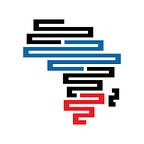Code for Africa, DW Akademie partner to establish forensic data desks in Kenya
Code for Africa and DW Akademie have partnered with a number of Kenyan newsrooms to build in-house forensic data desks and shared digital infrastructure.
Code for Africa (CfA) and DW Akademie (DWA) have partnered with a handful of trend-setting Kenyan newsrooms to build in-house forensic data desks and shared digital infrastructure. These will help surface the type of hard data and documentary evidence that allows for a more forensic approach to investigating the issues that so often cripple development in Kenya.
One of the challenges that this project seeks to address is the quality of investigative reporting in Kenya, which often rehashes data already in the public domain, and is prone to manipulation by shadowy puppet masters and crime cabals.
CfA is drawing on its experience in helping to establish investigative startups like Oxpeckers — Africa’s first environmentally focused investigative journalism unit — as well as its role in building the data journalism systems and human analysis teams that powered the two-year Panama Papers investigation at 18 African newsrooms — a project that resulted in government prosecutions.
Additionally, CfA has worked to spearhead transnational investigations into organised crime in the Mafia-in-Africa initiative that mapped the Italian Cosa Nostra’s hidden assets across Africa, and we are hoping to replicate the successes of these and other similar initiatives as part of the Investigative Labs project.
Since December 2018, 20 Kenyan journalists have received twice-a-month intensive hands-on and in-house training on forensic research and investigative reporting, as well as training on how to extract, analyse and visualise data from physical documents. They also participate in monthly Masterclasses as part of the Investigative Labs (iLAB) project.
The investigative journalists are from People Daily, Radio Africa Group (which publishes The Star), Capital FM, Africa Uncensored and The Elephant, as well as two community radio stations — Mtaani Radio serving Dagoretti, and Ruben FM from Mukuru kwa Ruben.
These journalists have already set up forensic data desks in their newsrooms and are in the process of producing hard-hitting investigative data-driven journalism reports shaped by evidence-based research and forensic analysis.
Each newsroom has chosen a specific platform from Code for Africa’s roster of projects on which to focus, and this will guide the data collection process. All the tools that we use are open-source, and can be repurposed based on the thematic areas each newsroom will focus on, enabling them to produce investigative stories from their own perspective.
“Investigative reporting in Kenya is largely personality-focused at the moment, driven by leaks or unnamed sources. With this project we want participating journalists to take a more evidence-based approach. The project will focus on forensic analysis and data-driven journalism approaches. We are excited to partner with DW Akademie in this project and we are looking forward to what the newsrooms and forensic data desks will produce,” Catherine Gicheru, Code for Africa Country Lead for Kenya said at the launch. “We hope that journalists will use the training they receive to go beyond what they have seen and heard to unearth more facts and provide something that is new and previously unknown.”
Jutta vom Hofe, DW Akademie Country Coordinator for Kenya, said that in making free media, free expression and free societies possible, data and investigative journalism helps to better understand many developments in politics and society.
“DW Akademie is very grateful that Code for Africa with its broad experience and in-depth expertise supports media houses and distinguished journalists in this very important field. We believe that this work will contribute to enhancing transparency and accountability in the country by giving citizens access to relevant data and deeper information,” said Ms Vom Hofe.
DW Akademie strengthens the human right to freedom of expression globally. Together with its partners, DWA plays a leading role in the development of free media systems, creates access to information and sets standards for education and independent journalism. DWA works to make free media, free expression and free societies possible.
About Code for Africa
Code for Africa (CfA) is the continent’s largest federation of data journalism and civic technology laboratories, with labs in four countries and affiliates in a further six countries. CfA manages the $1m/year innovateAFRICA.fund and $500,000/year impactAFRICA.fund, as well as key digital democracy resources such as the openAFRICA data portal and the GotToVote election toolkit. CfA’s labs also incubate a series of trendsetting initiatives, including the PesaCheck fact-checking initiative in East Africa, the continental africanDRONE network, and the African Network of Centres for Investigative Reporting (ANCIR) that spearheaded Panama Papers probes across the continent. CfA is an initiative of the International Center for Journalists (ICFJ).
About DW Akademie
DW Akademie is Germany’s leading organization for international media development, supporting the development of free and transparent media, quality journalism, and also offering programs to boost media skills. Together with its partners, DWA plays a leading role in making free media, free expression and free societies possible through the development of free media systems, creating access to information and setting standards for independent journalism.
